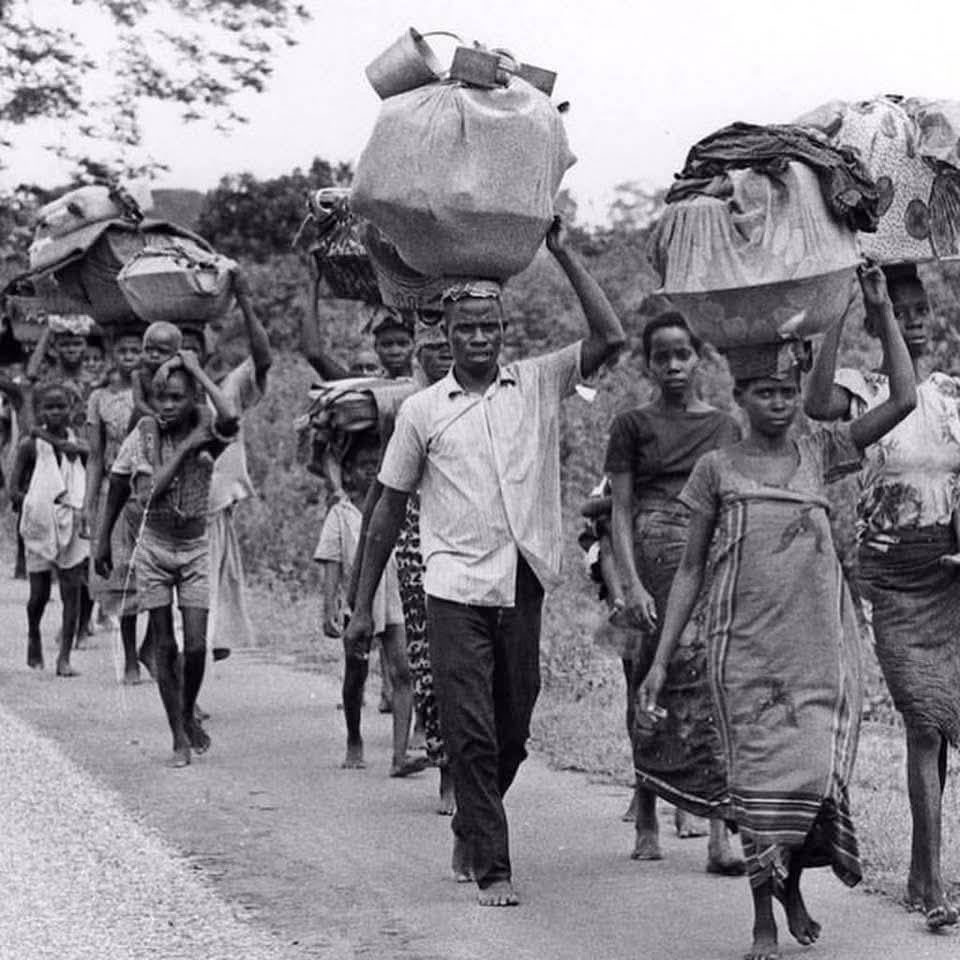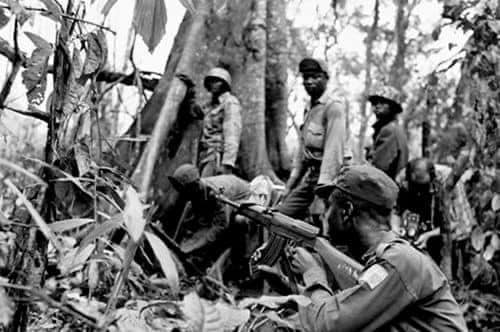Owerri, 1968.
A city gasping for breath in a tightening ring of steel.
Federal troops had surrounded it; food was gone, medicine a memory, and hope, rationed like salt.
Yet, inside that circle of siege, something fierce was alive. A spirit that refused to surrender.
Owerri was not just a battlefield, it was the last heartbeat of a dream.
The City That Refused to Fall
When the guns of the Nigerian Civil War thundered across the east, Owerri became more than coordinates on a map.
By the late months of 1968, it was one of the final strongholds of the Biafran Republic, cut off from the rest of the world, surrounded on all sides, yet burning with quiet resistance.
Federal forces launched waves of assault, hoping to choke the city into silence. But inside, life continued in defiance.
Mothers boiled cassava peels into meals. Boys too young to fight became errand runners for soldiers. Churches turned into makeshift hospitals. And at night, even with shells bursting in the distance, some people still prayed.
Owerri held on, not because it could win, but because surrender was worse than starvation.
The Last Stand of Biafra’s Spirit
Operation Siege on Owerri wasn’t just a military event, it was a human statement.
To be Biafran then was to live without certainty, to wake each day unsure if the sun would rise again, yet to rise anyway.
For months, the city remained under siege, cut off from supplies, communication, and even hope itself. But in that deprivation, something remarkable emerged, resilience that bordered on the spiritual.
Historians note that Owerri became a symbolic fortress of the Biafran identity. It was the last echo of an idea, that a people could stand, even if the world stood against them.
Resistance as a Language of the Oppressed
Every oppressed people learn one common tongue; resistance.
It doesn’t need words, only endurance.
In Owerri, resistance meant surviving one more night, carrying water past sniper fire, sharing a single yam among four families.
It was not rebellion for glory; it was survival as protest.
And in that way, Owerri spoke the language that still echoes across generations, that when power besieges you, your refusal to collapse becomes your loudest scream.
The siege of Owerri was not just military; it was psychological; a test of how long dignity could hold out against despair. And somehow, it did.
Victory Without Freedom

When the guns finally went silent and Biafra surrendered in January 1970, the siege was over, but the scars remained.
Owerri was rubble. Its streets littered with memories of hunger and songs that ended mid-verse.
The city survived, but the freedom it fought for did not.
Yet, even in that defeat, there was something sacred.
Because sometimes, victory is not in conquest but in endurance.
Owerri’s fall wasn’t a failure, it was a testament.
A proof that even when freedom is denied, it can never be erased.
The Spirit Still Breathes
Today, more than five decades later, the story of Owerri feels eerily familiar.
The blockades are different now, they are not made of guns and sandbags, but of unemployment, inflation, insecurity, and corruption.
Nigerians wake up each day surrounded by systems that choke, yet they still rise, still create, still resist.
From the tech innovator building against odds, to the artist painting truth in colors that power cannot censor, the siege has shifted, but the spirit has not died.
Like Owerri, we remain surrounded but not defeated.
Surrounded But Not Defeated
Freedom, perhaps, was never meant to be a moment, but a movement.
It is the daily act of remembering what the world wants us to forget.
Owerri stood not just as a city under siege, but as a symbol, that truth can outlive the walls that surround it.
And in that same spirit, BlaccTheddiPost stands today; as memory, as resistance, as voice.
Each story we tell, each truth we amplify, is a defiance of silence, a continuation of that same struggle for meaning, justice, and freedom.
Because while the sieges change from bullets to poverty, from censorship to disillusionment, the mission remains: to speak, to remember, to resist.
Owerri did not fall in vain.
Its fire burns through pens, through words, through voices like ours.
And so, this too is resistance;
a people still surrounded,
but never defeated.
A freedom unfinished
but still alive.
